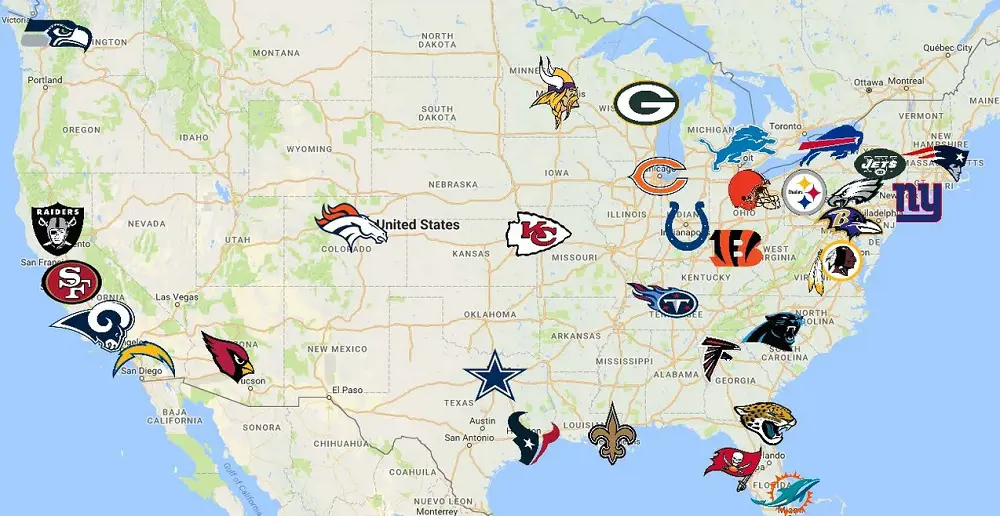The FIFA World Cup, a spectacle unlike any other has captivated the globe for over nine decades.
Every four years, nations unite under one banner, their hopes and dreams carried on the shoulders of 22 players. There have been 13 countries to make it to the World Cup Finals and 8 winners in the tournament history so far.
Today, we rewind the clock and celebrate the champions of the past, the teams whose feet danced their way to glory on the world's biggest stage.
Brazil
Brazil, the land of samba and iconic footballing figures, has lifted the FIFA World Cup trophy five times and is the only nation to participate in every tournament.
It all began in 1958 when a 17-year-old Pelé weaving magic on the pitch, Brazil lifted their first World Cup in Sweden. He scored six goals, including two in the final against the hosts, announcing his arrival on the world stage.
Pelé, now a global icon, led Brazil to two more victories in 1962 & 1970. They won 3-1 against Czechoslovakia in '62 and 4-1 against Italy in '70.

After 24 years of waiting, Brazil reclaimed the trophy in 1994, and the match was decided by a penalty shootout in the Final against Italy. Romario was awarded the Golden Ball as the best player of the tournament.
The year 2002 saw Brazil dance their way to World Cup glory for the fifth time winning 2-0 in the Final against Germany. Led by the redeemed Ronaldo, who silenced doubters with eight goals, including two in the final against Germany.
Italy
Italy's journey in the FIFA World Cup is a saga etched in grit, tactical genius, and moments of theatrical drama.
Unlike Brazil's samba-infused flair, Italy's story is one of defensive resolve, catenaccio mastery, and opportunistic counter-attacks.
Yet, this approach has brought them four glorious stars on their chest, marking them as one of the tournament's most successful nations.
- 1934 & 1938: Under the controversial reign of Benito Mussolini, Italy emerged victorious in their backyard in 1934 and again in France four years later.
- 1982: After missing the 1978 tournament due to a betting scandal, Paolo Rossi returned to lead Italy to glory in Spain. His goals in the knockout stages, culminating in a hat-trick in the final against West Germany, cemented his place among Italian legends.
- 2006: Italy defied the odds in Germany, with Fabio Cannavaro leading their impenetrable defence and Marco Materazzi's last-minute headed equalizer sending the final against France into penalties. Gianluigi Buffon's heroics in the shootout against France secured their fourth World Cup title.
Italy's success has often been attributed to "catenaccio," a defensive strategy emphasizing tight marking and counter-attacking opportunities.
Spain
Spain rewrote their footballing narrative in the 21st century, mesmerizing the world with their "Tiki-Taka" style and etching their name on the trophy in 2010.
Spain's World Cup story began in 1934, reaching the quarterfinals on home soil and showcasing flashes of their technical prowess. They repeated this feat in 1950, hinting at the potential that would blossom decades later.
The appointment of Luis Aragonés in 2004 marked a turning point. He instilled a possession-based philosophy, "Tiki-Taka," emphasizing intricate passing, positional play, and suffocating control.

Spain's dominance at Euro 2008, culminating in a 1-0 victory over Germany in the final, showcased the effectiveness of their new approach and served as a springboard for their World Cup triumph.
The Spanish National team entered the 2010 World Cup as favourites, and they didn't disappoint. Xavi and Iniesta conducted the midfield orchestra, orchestrating an avalanche of passes and dictating the tempo of every game.
David Villa's predatory instincts and Fernando Torres' pace provided the cutting edge, scoring crucial goals throughout the tournament. Iniesta scored the winning goal in extra time in the final against the Netherlands to get Spain their first World Cup trophy.
Germany
Nicknamed "Die Mannschaft" (The Team), the German national team is renowned for its meticulous preparation, tactical flexibility, and unyielding determination. With four World Cup titles to their name, Germany has established itself as a true powerhouse of the beautiful game.
They reached the semifinals in 1938 but fell short in the face of Italy's dominance. Sixteen years later, in 1954, they tasted their first World Cup victory on Swiss soil, with Helmut Rahn's late winner in the final against Hungary becoming a legendary moment.
They reached the Final in 1966 but they lost 4-2 against England. Their second World Cup win came in 1974, they won 2-1 against the Netherlands in the Final.

After losing in the Finals for consecutive years in 1982 and 1986, Germany won their third World Cup in 1990 in a 1-0 victory over Argentina in the final. They had lost 3-1 against Italy in '82 and 3-2 against Argentina in '86.
In 2014, under Joachim Löw's tactical nous, they achieved another victory on home soil, Mario Götze's extra-time goal in the final against Argentina silencing a stunned Maracanã stadium. They qualified for the Final for the eighth time after a historic 7-1 win against Brazil in the semi-finals.
France
France's story in the FIFA World Cup is a captivating tale of early disappointment, flamboyant flair, and ultimately, redemption on the world stage.
With two World Cup titles to their name, France has established itself as a force to be reckoned with, capable of producing moments of breathtaking brilliance and agonizing heartbreak in equal measure.
Despite boasting individual talent like Lucien Laurent, France failed to make a significant impact in their first two World Cup appearances, bowing out in the group stage in 1930 and the quarterfinals in 1938.

Under Aimé Jacquet's astute management, France finally found their rhythm in 1998. Zinedine Zidane, a magician with the ball at his feet, orchestrated their attacking play, culminating in his goals in the final against Brazil, securing their first World Cup title on home soil.
Led by Didier Deschamps' pragmatic approach and Kylian Mbappé's electrifying pace, France reclaimed their title in 2018.
Mbappé's hat-trick in the thrilling final against Argentina was not enough to retain the trophy in 2022, as Les Bleus fell short on penalties, leaving them with bittersweet memories of a valiant but unfinished campaign.
Argentina
Argentina's World Cup journey is a tango of passionate highs and agonizing lows, a captivating narrative woven with the threads of breathtaking talent, tactical turmoil, and a nation's undying love for the beautiful game.
With three stars adorning their chest, Argentina stands among the sport's elite, forever etched in the tournament's history.
On home soil, Mario Kempes, a bulldozer in boots, led Argentina to their first crown, it was a controversial triumph, but one that ignited Argentinian passion for the beautiful game.
Diego Maradona, a magician with the ball at his feet and a penchant for the theatrical, led the Argentinian team to their second World Cup victory in 1986.
His "Hand of God" and "Foot of God" goals against England were moments of raw genius, etching Argentina's second star into the trophy and Maradona's name in footballing folklore.
After years of near misses and Messi's agonising quest, redemption finally arrived in 2022. A team effort, galvanized by Lionel Messi's leadership and Angel Di Maria's veteran experience, culminated in a victory over France on penalties. Their third World Cup trophy managed to silence doubters and cemented Argentina's place among the world's elite.
England
England's journey in the FIFA World Cup is a tale woven with threads of hope, elation, controversy, and the lingering yearning for ultimate glory.
With one star etched on their chest, the Three Lions remain a force to be reckoned with, their story filled with iconic moments that have captivated and frustrated fans in equal measure.
Under manager Alf Ramsey, a squad nicknamed "Ramsey's Boys", England won their first World Cup in 1966. Geoff Hurst's hat-trick in the controversial final against West Germany, including a debated goal that still sparks debate, etched England's name in World Cup history.
England reached the semifinals in both 1970 and 1990, only to fall short on both occasions. Bobby Moore's leadership and Paul Gascoigne's mesmerizing skills offered glimpses of brilliance, but ultimately ended in disappointment.
They failed to translate individual talent into collective success despite entering the 21st century boasting a generation of talented players like David Beckham, Steven Gerrard, and Frank Lampard.
Under manager Gareth Southgate, England has shown signs of a resurgence, reaching the semifinals in 2018 and the quarter finals in 2022. Players like Harry Kane and Raheem Sterling have emerged as leaders, offering hope for a brighter future.
Uruguay
Uruguay's World Cup journey is a fascinating paradox: a nation of just 3.5 million people achieving footballing feats that defy their size.
With two stars adorning their sky-blue jerseys, they stand tall as one of the sport's most successful nations, their story a unique blend of early dominance and modern tactical mastery.
Uruguay stunned the world by claiming their first World Cup title on home soil in 1930. Led by the legendary José Nasazzi, they repeated the feat two decades later in a dramatic final against host Brazil, forever etching their name in footballing folklore.

Their success wasn't just about individual brilliance; it was built on a revolutionary tactical approach known as "La Celeste." This system emphasized defensive solidity, counter-attacking precision, and exploiting the offside trap, influencing generations of coaches and players worldwide.
After decades of near misses, Uruguay re-emerged as a force in the 21st century. Diego Forlán's thunderous volley and Luis Suárez's controversial "bite" became iconic moments as they reached the semifinals in 2010 and the quarterfinals in 2018.


